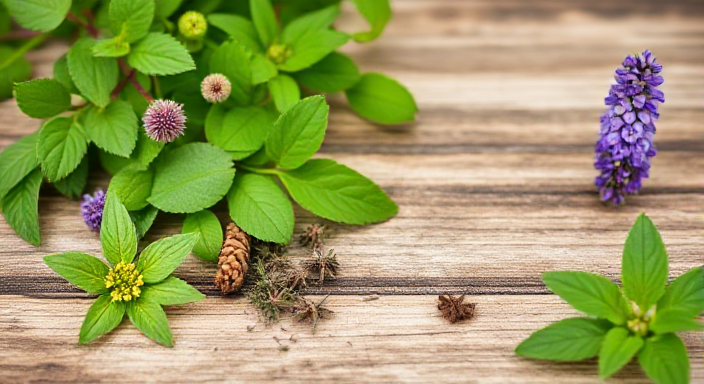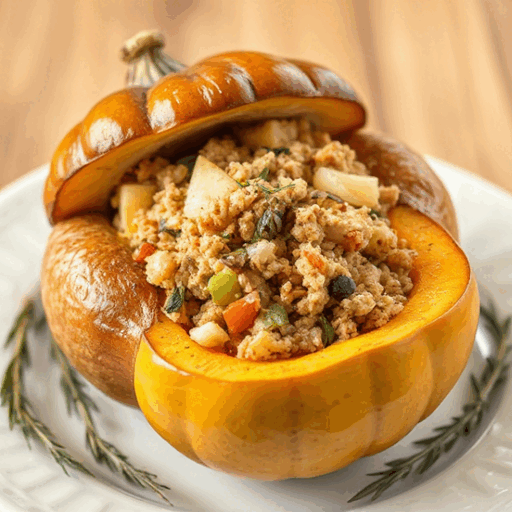What are the Collagen-rich foods?
Collagen is a body-produced fibrillar protein that gives elasticity and…

Herbs have been an integral part of healing traditions across cultures for centuries, offering natural solutions for stress relief, digestion, immune support, and more. These aromatic plants are not just flavor enhancers for your meals; they are packed with bioactive compounds that can profoundly support your well-being. By incorporating healing herbs into your daily routine, you can address a variety of health concerns while nourishing your body with nature’s gifts.
Let’s explore 10 powerful healing herbs—from ashwagandha to anise seeds—and how they can transform your health, one simple habit at a time.
Ashwagandha: Reduces Stress
Ashwagandha is a revered adaptogenic herb in Ayurvedic medicine, known for its ability to help the body manage stress. Adaptogens work by regulating cortisol, the hormone released during stress, and bringing balance to your nervous system.
Regular use of ashwagandha has been shown to reduce symptoms of anxiety, improve sleep quality, and enhance overall resilience to daily stressors. It also supports energy levels and cognitive function, making it an excellent herb for busy, overwhelmed individuals.
How to Use: Add ashwagandha powder to warm almond milk with a touch of honey for a calming bedtime drink, or take it as a supplement to support stress management.
Ginger: Relieves Nausea
Ginger is a well-known remedy for nausea and digestive discomfort. Its active compounds, gingerols and shogaols, help relax the stomach muscles and improve gastric motility, making it particularly effective for morning sickness, motion sickness, and post-surgery nausea.
Beyond easing nausea, ginger also reduces inflammation in the digestive tract and supports healthy circulation, making it a versatile herb for overall wellness.
How to Use: Brew fresh ginger tea by steeping sliced ginger root in hot water. You can also grate ginger into soups, stir-fries, or smoothies for added flavor and health benefits.
Thyme: Improves Respiratory Health
Thyme is a potent herb with antimicrobial and expectorant properties, making it an excellent choice for respiratory health. It contains thymol, a compound that helps loosen mucus and fight infections in the respiratory tract.
Whether you’re dealing with a cough, cold, or sinus congestion, thyme can help clear your airways and support faster recovery. It’s also a natural immune booster, helping to protect against seasonal illnesses.
How to Use: Steep fresh or dried thyme in hot water for a soothing tea, or add thyme to roasted vegetables and soups for an aromatic immune boost.
Sage: Enhances Memory
Sage isn’t just a culinary herb; it’s also a brain-boosting powerhouse. Rich in antioxidants and compounds that enhance acetylcholine—a neurotransmitter critical for memory and learning—sage has been shown to improve cognitive function and reduce symptoms of age-related memory decline.
In addition to its brain-boosting benefits, sage also has anti-inflammatory and antimicrobial properties, making it a great herb for overall health.
How to Use: Brew sage tea by steeping fresh or dried leaves in hot water. You can also use sage in marinades or sprinkle it over roasted root vegetables.
Cinnamon: Balances Blood Sugar Levels
Cinnamon is a warming spice with impressive health benefits, particularly for blood sugar regulation. Its active compounds, including cinnamaldehyde, improve insulin sensitivity and help lower blood sugar levels, making it a beneficial herb for individuals with type 2 diabetes or insulin resistance.
Cinnamon also has anti-inflammatory and antioxidant properties, which support heart health and protect against oxidative stress.
How to Use: Sprinkle ground cinnamon over oatmeal, yogurt, or baked sweet potatoes. You can also add a cinnamon stick to your tea or coffee for a naturally sweet and flavorful boost.
Hibiscus: Supports Liver Health
Hibiscus flowers are not only beautiful but also incredibly nourishing. Rich in antioxidants like anthocyanins, hibiscus supports liver detoxification by neutralizing toxins and reducing oxidative stress in liver cells.
Hibiscus tea is also known for its ability to lower blood pressure and cholesterol levels, making it a heart-healthy addition to your routine.
How to Use: Brew hibiscus tea by steeping dried hibiscus petals in hot water. Enjoy it hot or cold, with a splash of lemon and a touch of honey.
Cilantro: Detoxifies Heavy Metals
Cilantro is a natural detoxifier that helps remove heavy metals, such as mercury and lead, from the body. Its chelating properties bind to toxic metals and support their elimination through urine and stool.
In addition to its detoxifying benefits, cilantro is rich in vitamins A, C, and K, as well as antioxidants that support overall health.
How to Use: Add fresh cilantro to salads, guacamole, or smoothies. You can also blend it into homemade dressings or soups for a burst of flavor and detoxifying power.
Paprika: Boosts Immunity
Paprika, made from dried and ground red peppers, is more than just a colorful spice. It’s packed with vitamin C and carotenoids, which boost immune function and protect against oxidative stress.
Its capsaicin content also provides anti-inflammatory and pain-relieving properties, making it a great addition to meals for overall immune support.
How to Use: Sprinkle paprika over roasted vegetables, eggs, or grilled fish for a smoky flavor and a nutrient boost.
Mint: Supports Digestion
Mint is a soothing herb that has long been used to support digestion and ease gastrointestinal discomfort. Its menthol content relaxes the muscles of the digestive tract, reducing symptoms like bloating, gas, and indigestion.
Mint also stimulates bile production, which aids in the breakdown of fats and promotes smoother digestion overall.
How to Use: Brew fresh mint tea by steeping leaves in hot water, or chop mint to add to salads, fruit bowls, or homemade sauces.
Anise Seeds: Soothes Indigestion
Anise seeds are a traditional remedy for indigestion, gas, and bloating. Their carminative properties help relax the muscles of the gastrointestinal tract and reduce discomfort after meals.
Anise seeds also have a mild licorice-like flavor, which can be soothing and comforting for an upset stomach.
How to Use: Brew anise tea by steeping crushed seeds in hot water. You can also incorporate anise seeds into baked goods or sprinkle them over savory dishes for added flavor and digestive support.
Harnessing the Power of Healing Herbs
Incorporating herbs into your daily routine doesn’t need to be complicated. Whether you’re sipping ginger tea to ease nausea, sprinkling cinnamon on your morning oatmeal, or blending cilantro into your smoothies for detoxification, these small steps can make a big difference in your overall health.
The beauty of herbs lies in their simplicity and accessibility. They are a natural, sustainable way to support your body, calm your mind, and bring balance to your life. Start with one or two herbs that resonate with your needs and expand your repertoire over time.
Nature has provided us with these powerful remedies for a reason. By embracing the healing properties of herbs, you’re nurturing your body in the most natural and effective way possible.
Collagen is a body-produced fibrillar protein that gives elasticity and…
copyright © 2025 Anti-Inflammatory Approach. All rights reserved. Unauthorized reproduction, distribution, or use of any content, including text, images, recipes, or other materials on this website, is strictly prohibited without prior written permission. This website’s content is provided for informational purposes only and does not constitute medical or professional advice.


This $1 anti-inflammatory cookbook is packed with simple, tasty recipes to reduce inflammation and improve energy. Don’t miss out—get it now on Amazon!